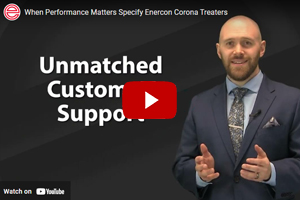The Buzz in Biodegradable Resins: Certification
- Published: March 01, 2003, By Nsenga Byrd Thompson, Staff Editor
Many of the processes performed and the products created within a converting facility aren't always the most environmentally friendly. However, this doesn't mean converters are shut off from several of the environmentally safe materials available, especially in the area of biodegradable resins.
However, many converters shy away from applications using these resins, fearing high cost and the need for major equipment upgrades. Realistically, some of these fears may be warranted, but knowing your converting plant's market goals and realizing the production capabilities within your plant can help you determine if biodegradable resins are a fit for your converting process.
According to Julian Jensen, market manager at Eastman Chemical, Kingsport, TN, converters first have to understand the processing parameters for biodegradable resins, which are very different from standard resins.“Since biodegradable [resins] behave differently during processing, the learning curve could drive processing costs higher initially,” he says. “Biodegradable resins cost more than conventional resins, and the processing costs can be initially higher, so the converter needs to be sure he has marketing opportunities for biodegradables that will command a higher price for the converted product.”
Ann Hriciga, global technology manager for Dupont Biomax/E, Wilmington, DE, adds,“As with any resin, the performance attributes required in the end product must be balanced with the processing window available on the converter's equipment.”
Jensen's and Hriciga's comments may come across as words of caution, but Jensen encourages, “Biodegradable [resins] will provide converters the opportunity to supply a value-added differentiated product to the marketplace, not a drop-in product at the same price.”
There are many buzz words being thrown around in the biodegradable resins industry, but maybe the most important are in the certification of materials and the setting of industry standards. “There are still a few products on the market that claim they are biodegradable but aren't truly. These ‘phony’ biodegradable products were one of the elements that hurt the industry when biodegradable materials were first introduced years ago,” says Jensen.
“Converters as well as consumers now can identify products that will biodegrade in as few as 180 days. The BPI — Institute of Biodegradable Products, a US organization, now certifies raw materials as well as finished products as being truly biodegradable. This means the products complete the mineralization cycle of the biodegradation process. The ‘phony’ biodegradable products merely break down into smaller pieces that can leave a chemical footprint behind in the soil,” continues Jensen.
Hriciga notes, “Higher performance polymers have obtained DIN registration, satisfying the requirements both for biodegrading in compost and for benign ecotoxicity. Converters now have a broader range of performance attributes available in the final article while still using materials that meet the stringent biodegradability standards of the certifying committees.”
Jensen maintains that manufacturing biodegradable products is still a challenge, but converters willing to be at the forefront of new trends will find plenty of market opportunities.
“There has been an exponential increase in interest and acceptance of biodegradable products by the consumer in the last few years. In the materials area, there are now biodegradable materials that work well together, maximizing each other's properties and providing converters with more options and more potential biodegradable applications,” explains Jensen.
Hricigo adds there are resins currently in development that will expand the processing window while still providing excellent barrier properties.
Jensen notes converters are meeting the challenges that biodegradable resins pose and keeping costs down by combining materials, subsequently allowing the market for biodegradable products to grow significantly.








